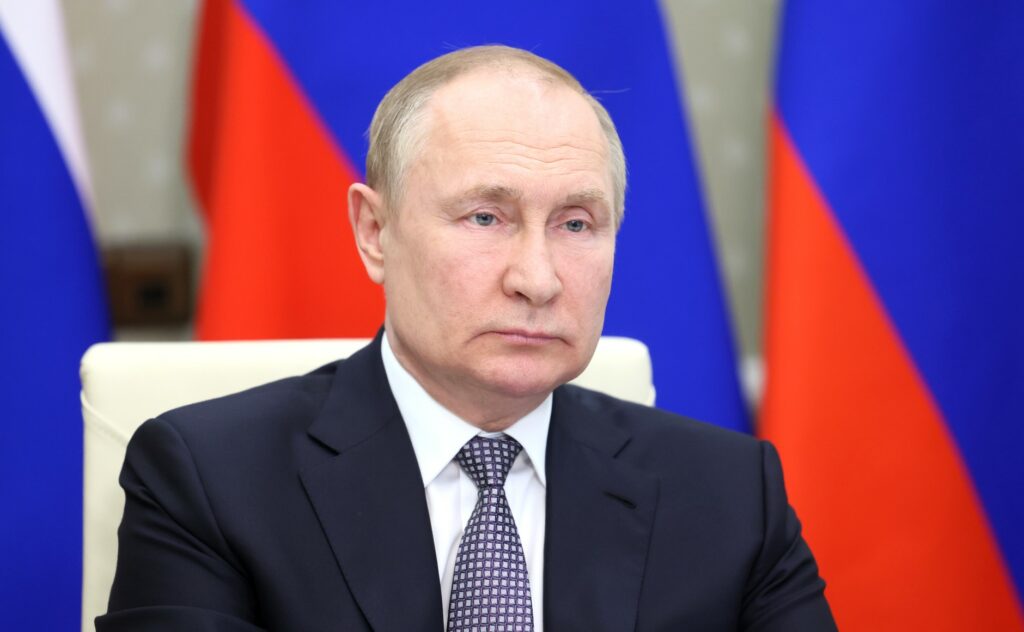Dimitri Simes, Former Trump Adviser, Charged with Laundering for Sanctioned Russian TV

The U.S. Department of Justice has indicted Dimitri Simes, a Russian-born U.S. citizen and former adviser to Donald Trump’s 2016 presidential campaign, accusing him of laundering funds while working for a Russian state television network. Simes and his wife, Anastasia, allegedly received over $1 million and additional perks for their work with Russia’s Channel One, a network sanctioned by the U.S. since 2022 due to Russia’s invasion of Ukraine. The indictments come at a time when concerns about Russian interference in U.S. elections continue to grow, according to the Associated Press.
National Security and Sanctions Violations
The charges against Dimitri and Anastasia Simes stem from their alleged violations of U.S. sanctions aimed at curbing Russian state propaganda and influence in response to the Ukraine conflict. U.S. Attorney Matthew M. Graves stated, “These defendants violated sanctions that were put in place in response to Russia’s illegal aggression in Ukraine.” He noted that Simes, given his deep experience with U.S. affairs after immigrating from the Soviet Union in the 1970s, should have understood the gravity of his actions.
Simes, 76, and his wife, 55, are believed to be residing in Russia, though their primary home is in Huntly, Virginia. Their work for Channel One has raised concerns about the potential for further Russian disinformation campaigns targeting the U.S. elections, especially as 2024 approaches.
Simes’ Role in Trump’s 2016 Campaign and Mueller Investigation
Dimitri Simes previously gained attention during Special Counsel Robert Mueller’s investigation into Russian interference in the 2016 U.S. presidential election. Simes was never charged in connection to the Mueller probe, but his leadership of the Center for the National Interest, a Washington-based think tank, drew scrutiny for its connections to Trump’s campaign. Notably, Simes provided Trump’s team with talking points on Russia and arranged a foreign policy speech at the Mayflower Hotel in Washington, D.C., which was attended by key figures, including former Russian ambassador Sergei Kislyak.
While Simes has denied any wrongdoing, his involvement with the Trump campaign and his interactions with Russian officials continue to be points of interest in the ongoing legal proceedings.
Additional Allegations Involving Anastasia Simes
In a separate indictment, Anastasia Simes was charged with receiving funds from Russian businessman Alexander Udodov, who has been sanctioned by the U.S. for his ties to the Russian government. Udodov, once related by marriage to Russian Prime Minister Mikhail Mishustin, has been investigated for money laundering. The funds allegedly funneled to Anastasia further deepen concerns about the Simes’ financial dealings and their potential role in circumventing U.S. sanctions.
Legal Representation and Response
It remains unclear whether Dimitri or Anastasia Simes have retained legal counsel for their defense. An attorney who previously represented Dimitri Simes confirmed that he no longer serves as his counsel. The Trump campaign has not commented on the charges against Simes, despite his prominent role in Trump’s 2016 election campaign.
In a prior interview with The New York Times, Simes defended his work on Russian television, stating, “I assumed that what I was saying on Russian TV would not be to the liking of the Biden administration, but I also assumed that as long as it was just my opinion and was presented as such, it was not something for which I could be prosecuted.”
Broader Concerns About Russian Interference
The indictments of Dimitri and Anastasia Simes arrive as U.S. authorities intensify efforts to counter foreign influence campaigns ahead of the 2024 election. The Justice Department has expressed renewed concern over Russian attempts to sway public opinion through online propaganda and state-sponsored media. These actions, coupled with financial dealings by Russian individuals under sanctions, underscore the ongoing struggle to protect U.S. electoral integrity from external threats.

